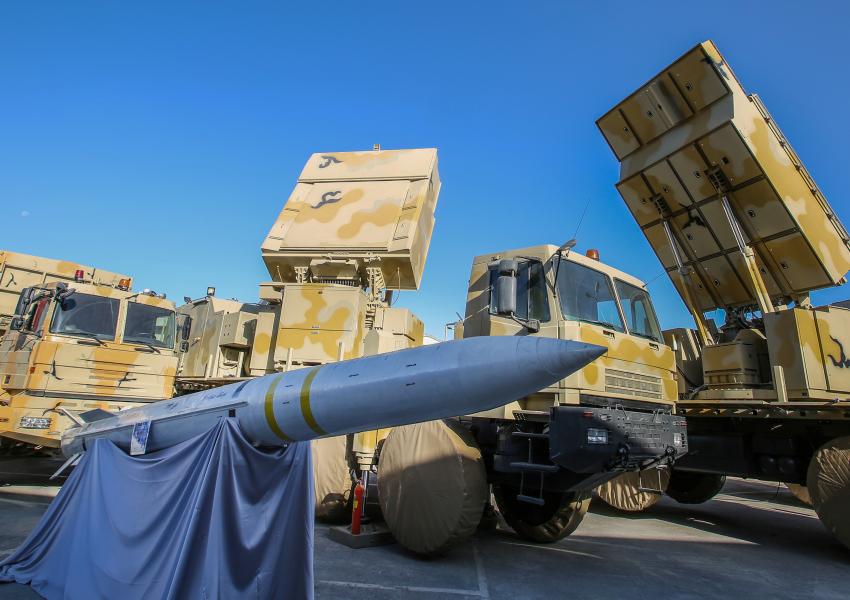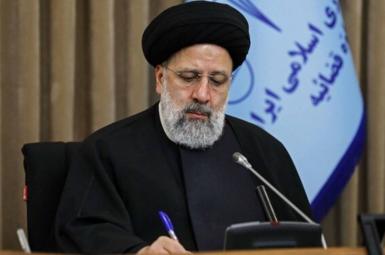
Rouhani Says Iran UN Arms Embargo Ends Sunday, Despite US Opposition
Iran will be able to buy and sell arms when the United Nations embargo ends on Sunday, October 18, despite objections from the United States, President Hassan Rouhani told the cabinet on Wednesday [October 14].
The UN Security Council last month rejected a US motion extending the five-year embargo, which is due to expire under the terms of the 2015 nuclear deal between Iran and world powers, known as the JCPOA (the Joint Comprehensive Plan of Action). Washington has nonetheless insisted it will make sure no country sells weapons to Iran.
“Those who ask what has the JCPOA done for us, should know that this is one of the achievements of the JCPOA,” Rouhani told the cabinet. “It has lifted the arms embargo and starting from Sunday, we can buy or sell weapons to and from anyone we like.”
While Iran has a domestic arms industry, it still uses dated hardware like the F14 Tomcat, which first flew 50 years ago. Russia is a likely supplier, with Moscow and Tehran discussing supply of the S400 missile defense system. Ruslan Pukhov, Director of the Moscow-based Center for Analysis of Strategies and Technologies, recently put potential arms to Iran sales at $5 billion over the next five years. “Tehran is interested in upgrading most of its weapons,” Pukhov told Nezavisimaya Gazeta. “But Iran’s financial capabilities are limited, and therefore it will carefully select priorities for future purchases.”
As well as US threats to sanction any arms supplier, Iran faces practical problems, at least in the short term. With diminished oil sales, and problems repatriating foreign exchange due to US financial sanctions, paying for weapons may be challenging.
Neither has Iran ever been a major arms seller, although Tehran has supplied weapons to proxies in Lebanon, Yemen, Syria, and Iraq. The Lebanese Hezbollah leader Hassan Nasrallah has acknowledged that Iran gives weapons and other support to Hezbollah.
On September 20, when the US announced it was unilaterally restoring previous sanctions against Iran using the JCPOA ‘snapback’ provision, Secretary of State Mike Pompeo threatened “consequences” for any countries refusing to follow the US lead. Russia, China and European countries all rejected Washington’s right to invoke snapback after itself leaving the JCPOA in 2018.
The US was “a defeated country,” Rouhani said on Wednesday. “We fought with America over this matter for four years and the United States tried for four years to extend the deadline, but it failed to do so. This is thanks to the Iranian people’s resistance.”
As part of its campaign of ‘maximum pressure,’ the Trump administration on October 8 imposed sanctions on 18 Iranian banks designed to further restrict Iran’s international trade. Since May 2018, when the left the JCPOA and began imposing draconian sanctions, Iran’s national currency, the rial, has fallen from 42,000 to the dollar to over 310,000. When Rouhani became in 2013, the dollar bought 31,000 rials.
Following Rouhani’s remarks about buying weapons, some Iranians on social media asked why the government should not instead buy medicine for Covid-19 patients, pay workers left unpaid for months, or buy tablets for students working online because of the coronavirus pandemic. A recent report by the Iranian Statistical Center said 50 percent of Iranian were living below the “absolute poverty line.”








